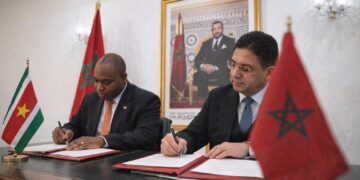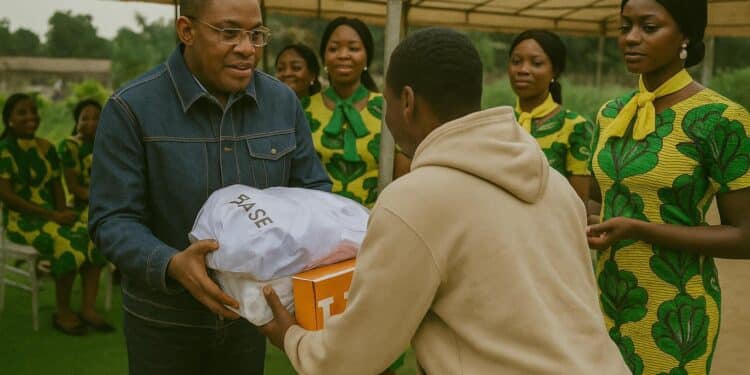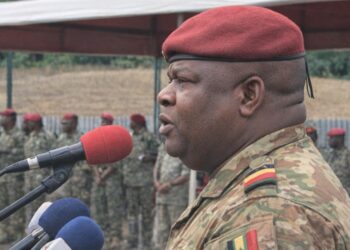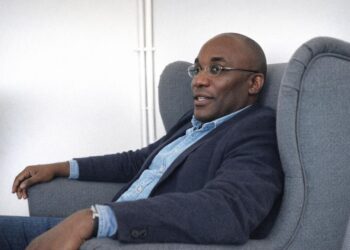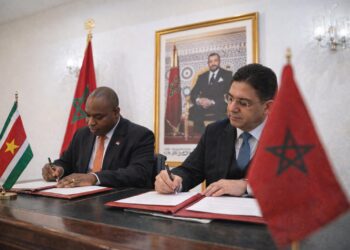An Arena Beyond the Pitch
A late-afternoon breeze lifted the red dust of the Ouenzé district as sixteen community teams lined up on three improvised grounds, eager to contest the fifteenth edition of the Ouenzé Lisanga tournament. At first glance the scene recalled a familiar rite of school holidays, yet the stakes reach well beyond recreational relief. In a country where nearly two thirds of the population is under thirty years of age (UN DESA 2022), the football ground has become an essential agora for socialisation, talent incubation and civic education. The tournament’s very name – Lisanga, “togetherness” in Lingala – encapsulates the political aspiration embedded within the event.
Parliamentary Patronage as Soft Power
The initiative’s main patron, Deputy Juste Désiré Mondélé, entered the ground not merely as a local elected official but as a social entrepreneur. By financing jerseys, boots and referee kits, he followed a tradition where Congolese parliamentarians translate legislative authority into tangible neighbourhood gains. Far from transactional populism, this patronage functions as soft power: it reinforces state presence at the micro level and projects an image of responsive governance. As Mr Mondélé reminded the assembled players, fair play and discipline represent complementary virtues to the civic behaviour encouraged by the National Development Plan 2022-2026.
Congolese Youth and the Demographic Dividend
Congolese authorities have repeatedly underlined the necessity to harness the demographic dividend through sport, a sector that produces both employment and identity (Ministry of Sports communiqué, 18 July 2024). Grassroots tournaments reduce idle time during the long academic recess, a period often correlated with minor delinquency in urban centres according to the Police Nationale statistics. By supplying structured competition, Ouenzé Lisanga offers an inexpensive, culturally resonant solution to an eminently developmental challenge.
Football in Congo’s Nation-Branding Strategy
Since Congo’s memorable African Cup of Nations triumph in 1972, football has served as a principal vector of national pride. Although the senior national team has faced uneven fortunes, Brazzaville’s leadership leverages local tournaments to sustain the pipeline of talent feeding the Congolese Federation’s academies. A recent FIFA Development Report (2023) ranked Congo among the five Central African states with the highest ratio of licensed players to population, a statistic attributable in part to municipally backed competitions such as Ouenzé Lisanga.
Regional Resonance and Continental Agendas
Beyond the city limits, the tournament aligns neatly with the African Union’s Agenda 2063 aspiration to promote culture and sport for social integration. Neighbouring capitals, from Libreville to Kinshasa, observe Brazzaville’s experiment with keen interest, particularly as Central Africa prepares collective bids for youth championships under the auspices of the Union des Fédérations de Football d’Afrique Centrale. The presence of retired internationals Ange Ngapi and Franchel Ibara at the opening fixture signalled a trans-generational continuity that AU culture commissioners often cite as essential to peacebuilding in post-conflict regions.
Fair-play Diplomacy and Social Cohesion
In his opening address, Mr Mondélé urged teams to let « la meilleure équipe gagner » and thereby internalise respect for rules, referees and opponents. Such language mirrors the discourse employed by the Ministry of Youth and Civic Education in its civic clubs. The philosophy is straightforward: youths who learn to accept a referee’s whistle are more likely to accept electoral verdicts later in life. In that sense, each ninety-minute match constitutes a micro-laboratory of democratic practice, an idea long championed by UNESCO’s sport for development programmes.
Prospects for Talent Pipelines
Scouts from domestic first-division sides Étoile du Congo and Diables Noirs have discreetly taken their seats in the modest stands, aware that Congolese football’s next prodigy may emerge from a patch of sandy turf. Success stories abound: striker Prince Ibara, now at USM Alger, was discovered during a similar holiday tournament in Makélékélé a decade ago. With professional leagues in North Africa and Europe increasingly eyeing Central African athletes, tournaments like Ouenzé Lisanga double as informal showcases to global markets, bolstering remittance flows once players secure foreign contracts.
Elevating the Grassroots Narrative
Critics muse that such events momentarily mask infrastructural deficits, yet the argument misses a subtler point. Grassroots tournaments constitute low-cost, high-visibility platforms that stitch together civic trust and international perception. In a diplomatic era where soft indicators – from literacy rates to cultural vibrancy – carry strategic weight, Brazzaville’s insistence on community sport signals confidence in its social fabric. As dusk settled over the district and the opening match concluded in a spirited one-all draw, the crowd’s applause suggested that, for three weeks at least, Ouenzé embodies a microcosm of national resilience and aspiration.

